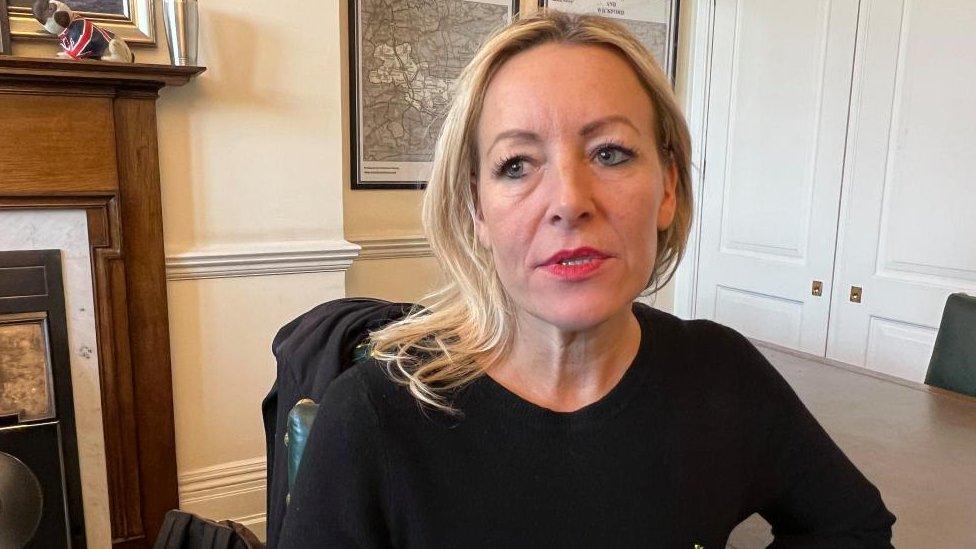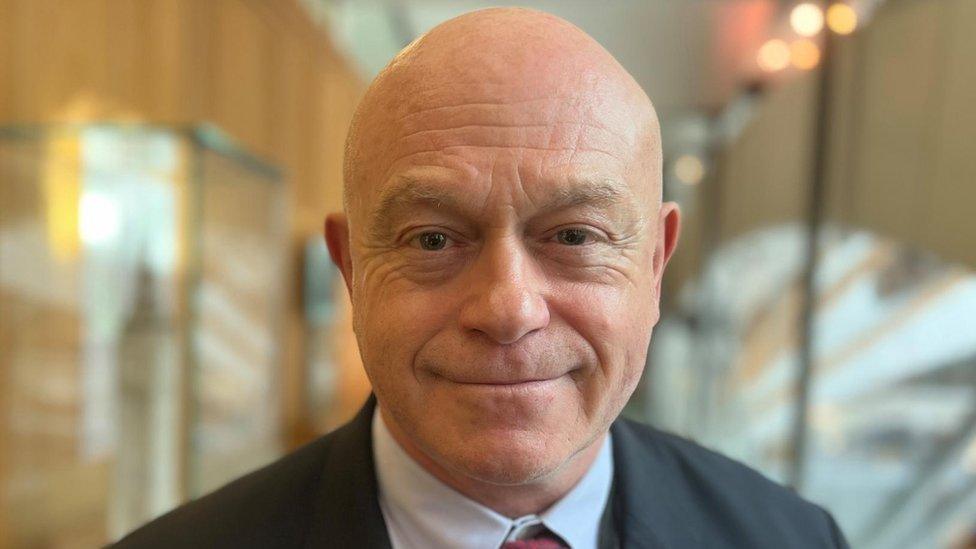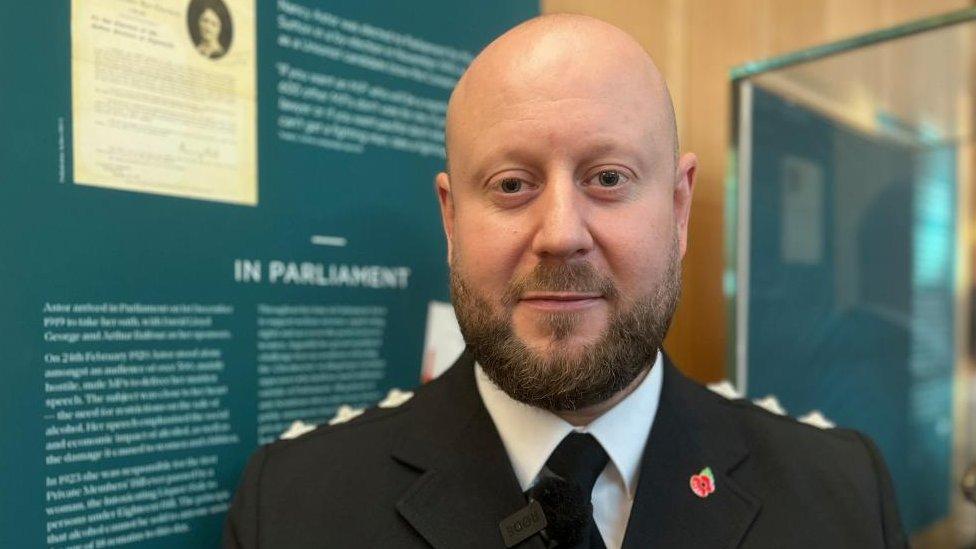Ross Kemp backs police powers to find missing veterans
- Published

It is named after Claire Lilley's former husband Alan Forcer, who joined the military aged 16 and served in Northern Ireland and Kosovo
Actor Ross Kemp says a new Police protocol should "save time" when searching for military veterans who go missing.
One veteran takes their own life every week in the UK according to Greater Manchester Police.
A new system, called the Forcer Protocol, has been developed by Claire Lilley, whose former husband killed himself in 2020.
A pilot of the protocol starts in Greater Manchester on Saturday.
The protocol gives police access to veterans' details such as any medication they might be taking, whether they pose a risk to themselves or others and where they have been found if they went missing before. Veterans or their families have to give consent to those details being shared first.
It is named after Ms Lilley's former husband Alan Forcer, who joined the military aged 16 and served in Northern Ireland and Kosovo.
Ms Lilley, from Rochford in Essex, said the aim of the protocol was "to gather intelligence on missing and vulnerable veterans who are at risk of going missing and contemplating suicide".
She said her ex-husband had struggled for many years with "undiagnosed complex PTSD".

Former EastEnders actor Mr Kemp said veterans "should be given the best of care"
Former EastEnders actor Mr Kemp said: "We have a massive issue with veterans sadly taking their own lives.
"One a week in the UK, that for me is unacceptable. People who have served their country should be given the best of care. That doesn't always happen.
"If they do go missing and their families know they have gone missing and they've put them on the safe and found website then hopefully the police can access and get to that person in time."

Ch Insp Mark Mangnall, the veterans lead at Greater Manchester Police, said the protocol would allow police to access information about vulnerable veterans to make a detailed risk assessment and "find them quicker and put support in place"
Ch Insp Mark Mangnall, the veterans lead at Greater Manchester Police, said the protocol would allow police to access information about vulnerable veterans to make a detailed risk assessment and "find them quicker and put support in place".
An armed forces veteran himself, he says there were 200,000 military veterans in Greater Manchester.
"It is a big community," he said. "We need to support and we are happy and passionate about doing that."
A launch event was hosted by former Armed Forces Minister Mark Francois in Parliament on Thursday. He said he hoped after the six month trial it would "be rolled out nationally across the country including by Essex Police as well".

Follow East of England news on Facebook, external, Instagram, external and X, external. Got a story? Email eastofenglandnews@bbc.co.uk, external or WhatsApp 0800 169 1830